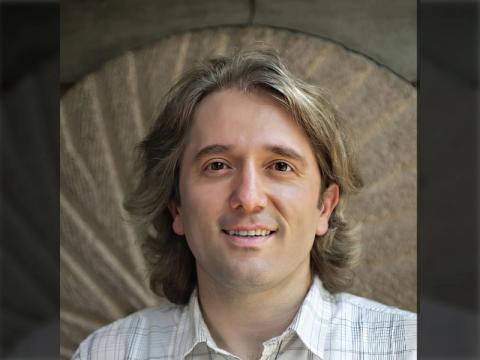Renowned scholar appointed to new faculty chair named for Tulane President
Ibrahim Demir, an acclaimed researcher in climate and data science, has been named the Michael A. Fitts Presidential Chair in Environmental Informatics and Artificial Intelligence at Tulane University.
Demir, whose appointment is effective Jan. 1, 2025, joins Tulane from the University of Iowa, where he is a professor in the Department of Civil and Environmental Engineering with a secondary appointment in the Department of Electrical and Computer Engineering.
As an expert in hydroinformatics, a field that uses information technologies to address water-related issues, Demir has built several environmental information systems that use artificial intelligence to create early warning systems for possible flooding.
Demir will serve on the faculty of the Department of River-Coastal Science and Engineering within Tulane’s School of Science and Engineering and as a core member of the Tulane ByWater Institute, a nationally recognized research institute focused on solutions to challenges faced by ecosystems, communities and businesses along the nation’s coastlines and rivers.
“I am deeply honored and excited to be appointed as the Michael A. Fitts Presidential Chair in Environmental Informatics and Artificial Intelligence,” Demir said. “The intersection of climate studies with artificial intelligence, cyberinfrastructure and data science is a dynamic ground for transformative research, offering the potential to revolutionize how we address environmental challenges. At the ByWater Institute, I am eager to explore these emerging interdisciplinary fields and advance Tulane’s mission across Louisiana, the United States and globally.”
Demir’s position is the latest appointment in a series of Presidential Chairs Tulane has established to attract world-leading faculty in areas such as biomedicine, coastal restoration, global health, nanotechnology and emerging fields of discovery. Presidential Chairs specialize in teaching and research that crosses multiple disciplines.
The Carol Lavin Bernick Family Foundation, longtime supporters of Tulane, donated $5 million to create the chair in honor of Tulane’s president.
“President Fitts’ emphasis on cross-disciplinary research and studies and his efforts to make Tulane's faculty the most renowned anywhere is not only benefiting current students but will have a profound effect on shaping the next generation of problem-solvers and innovators,” said Carol Bernick, who is founder of the Carol Lavin Bernick Family Foundation, the CEO of Polished Nickel Capital Management and a former chair of the Board of Tulane.
“The appointment of Professor Demir precisely fulfills the vision of the Presidential Chairs initiative,” Fitts said. “Here is a globally recognized expert working at the nexus of seemingly disparate fields — information technology and environmental science — to address major environmental challenges of our times. The generosity of the Carol Lavin Bernick Family Foundation has impacted the university in so many ways — from the Lavin-Bernick Center for University Life to gifts like this that continue to build a world-class faculty defined by collaboration and innovation that can change the world.”
At the University of Iowa, Demir led the Hydroinformatics Lab, specializing in hydroinformatics, environmental information systems, scientific visualization and big data analytics. His projects include intelligent flood response systems, crowdsourced augmented reality for environmental monitoring, virtual and holographic applications for hydrological simulations, and cyber learning tools for emergency management.
“Ibrahim is an exciting interdisciplinary scholar whose arrival will further solidify Tulane's status as a leader in the interdisciplinary study of environmental data,” Tulane Senior Vice President for Academic Affairs and Provost Robin Forman said. “He also brings new perspectives on the role of artificial intelligence more broadly in scientific research that will push us to the frontier of some of the most interesting conversations of our day.”
Demir has led the design and development of many novel research and operational information systems, including the Iowa Flood Information System, the Upper Mississippi Information System and the Blue Green Action Platform.
Demir received his Master of Science degree from the Gebze Institute of Technology in Turkey and a PhD from the Warnell School of Forestry and Natural Resources at the University of Georgia.

